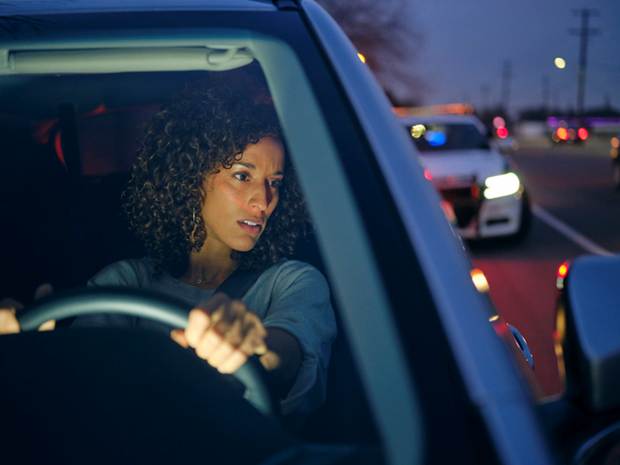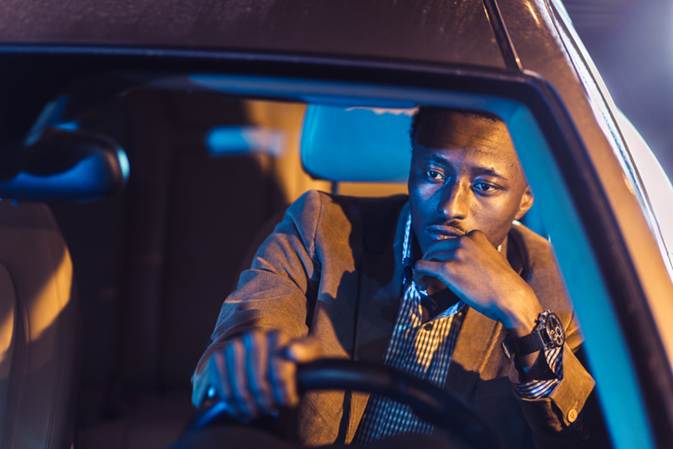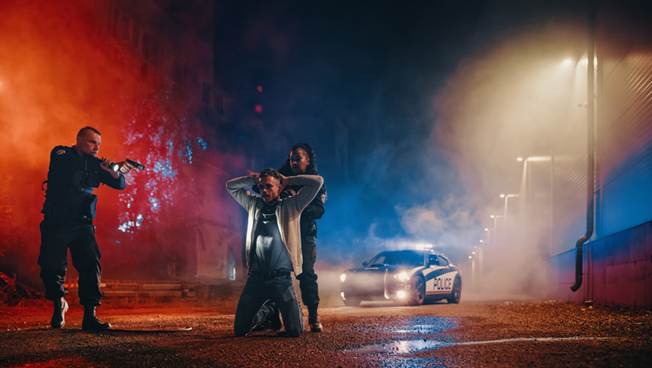
New York Racial Profiling Attorneys
You Were Singled Out Because of Who You Are
Being racially profiled is disorienting. You might have felt your heart race when you were stopped by the police, followed in a store, or questioned on the subway. At first, you probably questioned yourself. Did I do something wrong? But deep down, you knew the truth: this happened because of your race, skin color, or background.
That realization stings. It brings a mix of confusion, anger, fear, and even shame. You might've walked away shaken, humiliated, or furious, only to be told you were "overreacting" or "imagining things." You're not. It's not in your head, and it’s not okay.
At Horn Wright, LLP, we fight for people who’ve been racially profiled, mistreated, and ignored. Our attorneys know how damaging these encounters can be, and we’ve helped clients across New York and the Northeast hold police, schools, businesses, and agencies accountable.

What Legally Counts as Racial Profiling in New York
Racial profiling happens when someone in power treats you differently based on your race, color, national origin, ethnicity, or perceived immigration status. In New York, that treatment isn't just unethical. It can be illegal.
Under the New York State Human Rights Law it's illegal to discriminate against someone in public spaces, workplaces, housing, and schools. Federal civil rights laws provide similar protections, including the Civil Rights Act and constitutional protections under the Fourth and Fourteenth Amendments.
Racial profiling can show up in many places:
- Police and transit officers stopping people without cause
- Landlords refusing to rent based on race
- Employers disciplining workers unfairly
- Teachers punishing students more harshly
- Store staff following Black and Brown shoppers
These laws apply to both government actors and private businesses. Whether it happens on the street or in a store, it matters.
Real-Life Examples of Racial Profiling at Work
Racial profiling doesn’t always look dramatic. Sometimes it’s subtle, but it leaves a deep impact.
It might happen when you're stopped in the subway because you "match a description." Or when you notice officers always patrolling the same communities in Brooklyn, the Bronx, or Harlem more aggressively than wealthier, whiter neighborhoods.
Maybe your teenage son gets in-school suspension while his white classmate gets a warning for the same behavior. Maybe you walked into a department store near Times Square and noticed an employee following you from aisle to aisle.
Here are a few examples:
- Being stopped or searched on public transit without reasonable suspicion
- "Random" ID checks targeting mostly Latinx and Black individuals
- Students of color facing suspension for minor classroom disruptions
- Shoppers confronted or accused of theft without cause
These aren’t isolated incidents. They reflect systemic problems.
Discriminatory Stops and Searches by Police
In New York, police stops are one of the most visible forms of racial profiling. The NYPD’s stop-and-frisk policies may have changed on paper, but the effects linger.
Black and Latino New Yorkers continue to be disproportionately stopped, questioned, and frisked compared to white residents. Many of these encounters lead nowhere. No arrest. No ticket. Just humiliation.
Police body camera evidence and complaint data have started to pull back the curtain on these patterns. If your experience matches known trends, that helps strengthen your case.
Some red flags include:
- Officers using vague justifications like "furtive movement"
- Stops with no specific description or report
- Repeated targeting in certain zip codes, especially near NYCHA housing
It adds up. And when those stops turn into arrests, it can spiral fast.
When Profiling Leads to Arrest, Injury, or Worse
What starts as a stop can quickly become a wrongful arrest. Or worse.
Racial profiling often leads to detainment without cause. People are handcuffed, searched, or even injured during an encounter that never should have happened. Some face excessive force. Others are arrested based on weak evidence or false assumptions.
Even if you're released, the damage sticks. You may carry physical injuries, emotional trauma, and a deep sense of violation. It disrupts your day, your dignity, and sometimes your livelihood.
False arrests tied to profiling aren’t rare. They happen on sidewalks, in lobbies, outside bodegas, and during criminal investigations.
Profiling isn’t just offensive. It’s dangerous.

Racial Profiling on Public Transit and in Stores
Turnstile enforcement in the MTA system is a hotbed for profiling. Officers focus on certain stations (mostly in lower-income neighborhoods) issuing summonses or arrests disproportionately to people of color.
Inside stores, racial profiling looks like:
- Security tailing you while you shop
- Being accused of shoplifting without cause
- Forced bag checks
Under public accommodation laws, businesses can’t treat people differently because of race. That means they can't harass, accuse, or refuse service based on skin color, language, or perceived background.
Racial profiling in housing and employment is also illegal. Stores, malls, and even bodegas are subject to these laws. If they cross the line, they can be held accountable.
How Racial Profiling Affects Students and Young People
Racial profiling doesn’t wait until adulthood. In many schools across New York City and upstate districts, it starts early.
Black and Brown students often face:
- Harsher punishments than white peers
- Escalated responses from School Resource Officers
- Constant surveillance or suspicion
What might be labeled as "horseplay" for a white student becomes "aggressive behavior" for a student of color. This double standard sets in motion a cycle that affects self-esteem, grades, and opportunity.
Both federal and New York education laws protect students from discriminatory discipline. But enforcement takes evidence and legal action. Profiling in schools can shape a young person’s entire future.
Racial profiling of juveniles and students is a serious civil rights issue.
Surveillance and the Digital Expansion of Racial Profiling
Racial profiling has gone digital. From facial recognition and airport security to predictive policing tools, bias isn’t just on the streets, it’s in the data.
New York's POST Act requires the NYPD to disclose how surveillance tools are used. But transparency doesn’t always mean accountability. These technologies often misidentify people of color or disproportionately track them.
Cameras in subways, street corners, and schools feed into databases that fuel biased policing. AI tools used in hiring, housing, and law enforcement can reinforce discrimination, even when no human is directly involved.
Profiling has evolved. And it’s watching.
The Psychological and Financial Cost of Being Profiled
Racial profiling takes a real toll. It isn’t just a bad memory, it leaves emotional, social, and financial scars.
Victims often struggle with:
- Anxiety, depression, or psychological harm
- Humiliation and shame
- Missed work or school days
- Lost job opportunities
Being profiled can also change how you're treated in your own community. Employers might second-guess you. Friends may pull away. The stigma spreads.
And the costs add up fast. Therapy, legal fees, time off work, all for something that never should have happened.

What Laws Protect You from Racial Profiling
Several laws at the city, state, and federal level provide real tools for accountability.
- New York State Human Rights Law: Covers discrimination in public spaces, schools, jobs, and housing
- NYC Human Rights Law: Offers even broader protections with no caps on emotional damages
- Fourth and Fourteenth Amendments: Protect against unlawful searches and unequal treatment
- Civil Rights Act §1983 and §2000a: Allow lawsuits against officials and businesses that violate rights
These legal standards for challenging racial profiling give victims a path toward justice.
Whether the profiling happened on the street, in a classroom, or inside a business, you don’t have to accept it or stay silent. Legal protections aren’t just words on paper, they’re tools you can use to demand fairness and accountability. You deserve to feel safe and respected in every space you enter.
What Evidence Strengthens a Racial Profiling Case
Strong evidence can make all the difference. The more documentation you have, the better your chances of holding the other party accountable.
Useful evidence includes:
- Police or transit reports
- Ticket logs and bodycam footage
- Surveillance camera videos
- Screenshots of offensive social media posts
- Witness statements or testimony from others who were also profiled
Building a strong racial profiling case often comes down to what you can show, not just what you experienced.
How to Prove It Was Profiling and Not Just Bad Policing
Racial profiling cases often rely on patterns. Was the treatment you got worse than others in similar situations? Were others let go while you were searched or detained?
You don’t need to prove intent. Especially under the NYC Human Rights Law, the impact of the discrimination matters more than the motive.
Things to look for:
- Different treatment compared to white individuals in the same setting
- Patterns in stop data or complaint records
- Repeated issues from the same officer, business, or school
Horn Wright, LLP, Helps New Yorkers Fight Back Against Racial Profiling
At Horn Wright, LLP, we understand how painful and unfair racial profiling can be. Our attorneys have helped clients across New York and beyond challenge discriminatory treatment by police, schools, businesses, and transit authorities.
Whether you were stopped without cause, detained, or mistreated based on your race, we’re here to help you seek justice. Our firm has a strong track record in civil rights litigation, including filing a racial profiling lawsuit against police and fighting for fair settlements and jury awards.
Contact our offices today for a FREE consultation.

What Sets Us Apart From The Rest?
Horn Wright, LLP is here to help you get the results you need with a team you can trust.
-
Client-Focused ApproachWe’re a client-centered, results-oriented firm. When you work with us, you can have confidence we’ll put your best interests at the forefront of your case – it’s that simple.
-
Creative & Innovative Solutions
No two cases are the same, and neither are their solutions. Our attorneys provide creative points of view to yield exemplary results.
-
Experienced Attorneys
We have a team of trusted and respected attorneys to ensure your case is matched with the best attorney possible.
-
Driven By Justice
The core of our legal practice is our commitment to obtaining justice for those who have been wronged and need a powerful voice.

